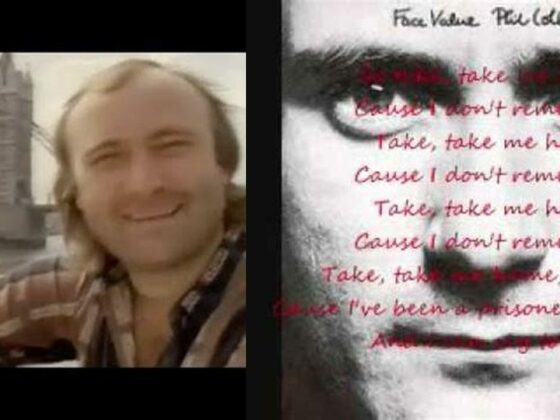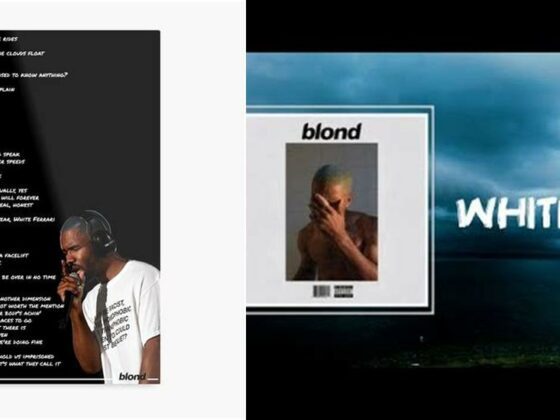Chi chi man song meaning: Unraveling the Chi Chi Man Song Meaning: A Tale of Homophobia and Freedom of Expression
Curious about the controversial meaning behind the Chi Chi Man song? Delve into this captivating exploration of the song’s significance, navigating through the complexities of homophobia and the freedom of expression. Join us as we dissect the layers of this thought-provoking topic and uncover the truth behind the lyrics. Get ready to embark on a journey that challenges perceptions and sparks essential conversations.
Chi Chi Man Song Meaning: A Tale of Homophobia and Freedom of Expression
Introduction:
In the realm of music, songs often hold the power to ignite controversy, spark societal debates, and leave a lasting impact on culture. One such song that stirred up a storm of controversy is “Chi Chi Man” by the Jamaican reggae group T.O.K. Released in 1998, this dancehall track generated a polarizing response, inciting discussions about homophobia, freedom of expression, and the power of music. This blog post delves into the meaning behind “Chi Chi Man,” exploring its historical context, the backlash it faced, and its enduring legacy.
1. Chi Chi Man: A Song Reflecting Societal Sentiments:
At the time of its release, “Chi Chi Man” mirrored the prevalent sentiments within Jamaican society. Homophobia was deeply ingrained in cultural norms, and the song’s lyrics, which openly expressed anti-gay sentiments, resonated with a segment of the population. The song’s lyrics depicted a violent and hostile attitude towards homosexual individuals, contributing to the already hostile environment for LGBTQ+ people in Jamaica.
2. Backlash and Criticism:
The release of “Chi Chi Man” sparked immediate backlash from various quarters. Critics condemned the song for perpetuating homophobia and inciting hatred and violence against LGBTQ+ individuals. Many LGBTQ+ rights organizations and activists denounced the song, emphasizing its harmful impact on an already marginalized community. The controversy surrounding the song also raised questions about the role of music in shaping societal attitudes and the responsibility of artists in addressing sensitive issues.
3. T.O.K.’s Defense:
In the face of mounting criticism, T.O.K. defended their song, claiming that it was not intended to incite violence or hatred. The group maintained that “Chi Chi Man” merely reflected the reality of Jamaican society at the time, highlighting the prevalence of homophobia and the need for dialogue to address it. T.O.K. emphasized that they were not promoting homophobia, but rather shedding light on a pressing social issue.
4. Lasting Impact on the Dancehall Genre:
Despite the controversy, “Chi Chi Man” had a profound impact on the dancehall genre. The song sparked critical discussions about homophobia, freedom of expression, and the power of music to influence societal attitudes. It opened up a dialogue about the need for inclusivity and respect for LGBTQ+ individuals. The song also highlighted the role of music as a tool for social change, capable of challenging societal norms and fostering progress.
5. Polarizing Audience Response:
The audience response to “Chi Chi Man” was highly polarized. Some embraced the song, seeing it as a reflection of the realities of Jamaican society and appreciating its raw and honest portrayal of homophobia. Others vehemently condemned the song, viewing it as homophobic, hateful, and harmful to LGBTQ+ individuals. The song’s polarizing nature ignited heated debates, further amplifying the ongoing conversation surrounding homophobia and the role of music in addressing social issues.
6. Cover Versions and Remixes:
In the years following its release, “Chi Chi Man” has been subject to numerous cover versions and remixes. These reinterpretations have offered diverse perspectives on the song, expressing both support and condemnation. Some artists have used their covers to challenge the homophobic message of the original, while others have sought to reclaim the song, offering a more inclusive and positive interpretation. These variations have further fueled discussions about the song’s legacy and its enduring impact on Jamaican culture.
7. T.O.K.’s Acknowledgement and Remorse:
In recent years, T.O.K. has acknowledged the controversy surrounding “Chi Chi Man” and expressed remorse for any pain caused by the song. The group has stated that they have moved on from the controversial aspects of the song and are focused on their growth as artists. T.O.K.’s acknowledgement of the harm caused by the song demonstrates a willingness to learn and grow, and highlights the importance of accountability in addressing historical missteps.
8. Contemporary Perception and Continued Advocacy:
In contemporary times, the perception of “Chi Chi Man” varies widely. Some view it as a homophobic relic of a bygone era, while others recognize its historical and cultural context, seeing it as a reflection of societal attitudes at the time of its release. The song continues to serve as a reminder of the progress made in terms of LGBTQ+ acceptance and highlights the importance of continued advocacy for inclusivity.
9. Importance of Respectful Dialogue and Understanding:
“Chi Chi Man” underscores the need for respectful dialogue and understanding when addressing sensitive topics through art. The song’s controversial nature sparked heated debates, but it also opened up a space for critical conversations about homophobia, freedom of expression, and the intersection of music and society. The song’s legacy emphasizes the responsibility artists have to recognize the power and consequences of their words, and the importance of using their platform to promote inclusivity and understanding.
10. Conclusion:
“Chi Chi Man” by T.O.K. remains a potent and controversial song that has left an indelible mark on Jamaican culture and the dancehall genre. Its exploration of homophobia, freedom of expression, and the power of music ignited critical discussions and sparked a broader dialogue about societal attitudes towards LGBTQ+ individuals. While the song’s homophobic lyrics continue to draw criticism, its enduring legacy lies in its ability to provoke thought, challenge norms, and foster progress towards a more inclusive and accepting society. “Chi Chi Man” serves as a reminder of the responsibility artists have to use their platform responsibly, and the importance of addressing sensitive topics with respect, understanding, and a commitment to positive change.
Questions & FAQ about Chi Chi Man Song Meaning
What impact did “Chi Chi Man” have on the dancehall genre?
The song had a profound impact, sparking critical discussions about homophobia, freedom of expression, and the power of music to influence societal attitudes. It opened up a dialogue about the need for inclusivity and respect for LGBTQ+ individuals.
What critical discussions did “Chi Chi Man” spark?
The song sparked discussions about homophobia, freedom of expression, and the power of music to influence societal attitudes. It also highlighted the role of music as a tool for social change, capable of challenging societal norms and fostering progress.
What societal issues did “Chi Chi Man” bring to light?
The song brought attention to the need for inclusivity and respect for LGBTQ+ individuals, as well as the responsibility of artists in addressing sensitive issues.
How did “Chi Chi Man” contribute to the dialogue about inclusivity?
The song highlighted the need for inclusivity and respect for LGBTQ+ individuals, opening up discussions about societal attitudes and the role of music in fostering progress.
What role did “Chi Chi Man” play in challenging societal norms?
The song demonstrated the power of music as a tool for social change, challenging societal norms and fostering critical discussions about homophobia and freedom of expression.
What lasting impact did “Chi Chi Man” have on the dancehall genre?
Despite the controversy, “Chi Chi Man” had a lasting impact on the dancehall genre, opening up discussions about homophobia, freedom of expression, and the need for inclusivity and respect for LGBTQ+ individuals.


